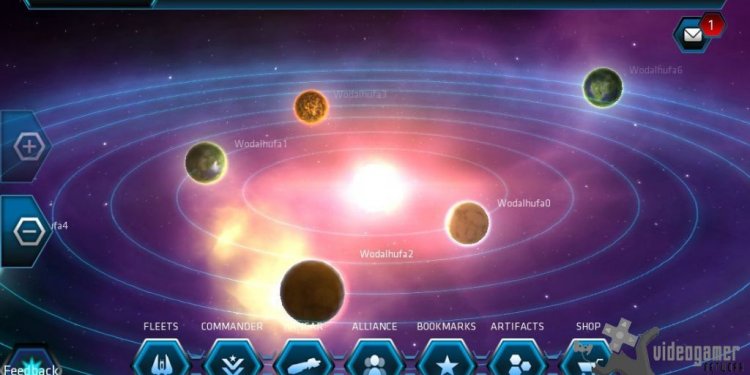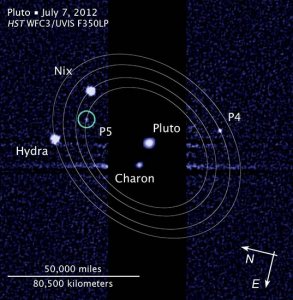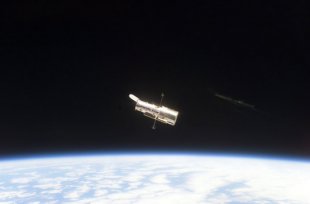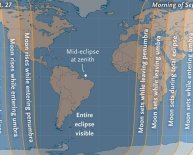
Planets in different Galaxies
 Topics:Pretty pictures, explaining science, spacecraft, trans-neptunian objects, Pluto, dwarf planets beyond Neptune, New Horizons, stars and galaxies, Hubble Space Telescope
Topics:Pretty pictures, explaining science, spacecraft, trans-neptunian objects, Pluto, dwarf planets beyond Neptune, New Horizons, stars and galaxies, Hubble Space Telescope
How come Hubble's pictures of galaxies billions of light years away are so beautifully detailed, yet the pictures of Pluto, which is so much closer, are just little blobs? I get asked this question, or variations of it, a lot. Indeed, it's hard to fathom; in our heads the distance to Pluto is "far" and the distance to other galaxies "very far" but I doubt that very many people have any intuitive understanding for how far either one of those distances is, much less their relative sizes. (I certainly don't.)
The good news is, some fairly basic math will help you understand why Hubble's pictures of galaxies look like this:

NASA, ESA, A. Riess (STScI/JHU), L. Macri (Texas A&M University), and the Hubble Heritage Team (STScI/AURA)
Galaxy NGC 5584 from Hubble WFC3
The brilliant, blue glow of young stars traces the graceful spiral arms of galaxy NGC 5584. Thin, dark dust lanes appear to be flowing from the yellowish core, where older stars reside. The reddish dots sprinkled throughout the image are largely background galaxies.
 While the pictures of Pluto and its moons look like this:
While the pictures of Pluto and its moons look like this:
NASA, ESA, M. Showalter (SETI Institute) and L. Frattare (STScI)
A fifth moon for Pluto
An image taken on July 7, 2012 by the Wide Field Camera 3 on the Hubble Space Telescope shows the recently discovered fifth moon of Pluto. Moons P4 and P5 are now known as Kerberos and Styx, respectively.
 The basic question that we're asking here is, how large do galaxies and Pluto appear in the sky? To answer that question, we need to know their sizes and distances.
The basic question that we're asking here is, how large do galaxies and Pluto appear in the sky? To answer that question, we need to know their sizes and distances.
To gauge how large these things appear in our sky, we can take the ratio of these things' sizes to their distances. But don't take out your calculators yet. Before you start punching in numbers with lots of zeros, you should first do a mental reality check on their order-of-magnitude proportions.
- The galaxy is like a hundred thousand wide divided by a hundred million away; that ratio should be around a thousandth.
- Pluto is like a thousand wide divided by a billion away; that ratio should be around a millionth.
- So we already know that the galaxy should appear about a thousand times bigger in the sky than Pluto does!
It's important to do a reality check like this first, because when you're dealing with very large or very small numbers, forgetting to punch in one zero in your calculator can majorly affect the outcome of your calculations. Now that we've done that, we can plug in the actual numbers.
flights to barbados cheap flights florida vegas flights flights to barbados aaa flights southwest flights flights to ny atlanta to fort lauderdale flights flights to palm springs cheapest flights right now international flights to india eugene oregon flights hawaii flights orbitz flights cheapoair flights us virgin islands flights hawaii cheap flights flights from atlanta to miami flights to tucson vegas flights flights to england jetblue flights check in air flights flights from ny to puerto rico flights to charlotte nc cheap flights from seattle cheap flights oair round trip flights lax to orlando flights flights from lax to denver houston flights flights restaurant las vegas flights to norfolk va














